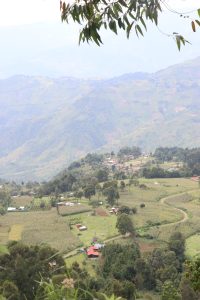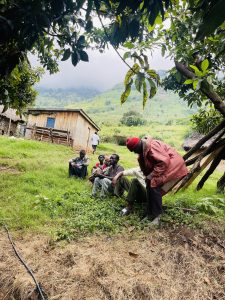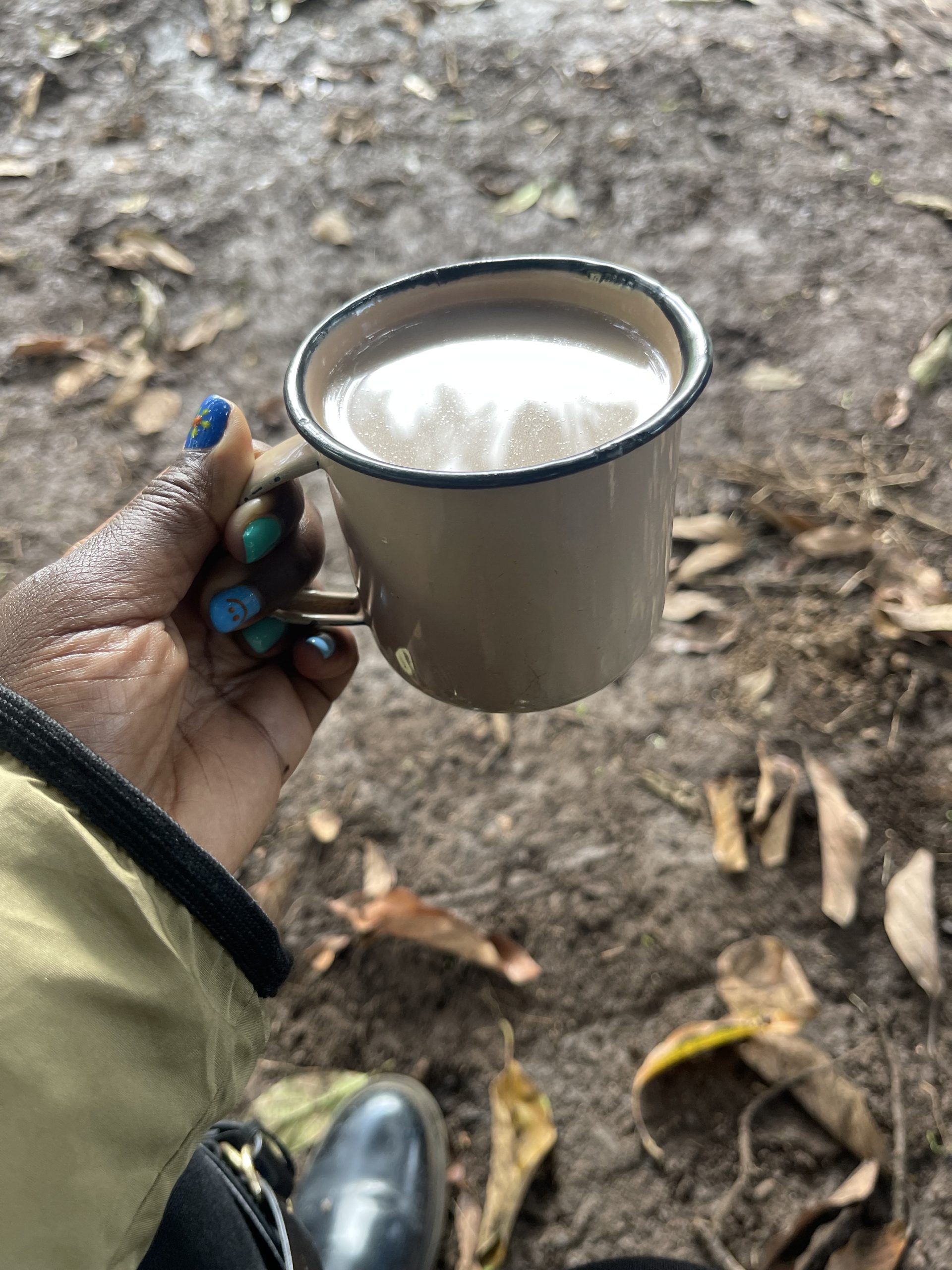What restoration means to local farmers
Just two hundred metres from Ngobisi Primary School, nestled in the hilly landscape of Elgeyo Hills, lives Miriam, a woman whose presence in the community is as grounding as the roots of the trees she helps plant.
Miriam isn’t just a local farmer. She’s a restoration champion, a community leader, and the go-to person for our team when it comes to outreach, field visits, or anything that calls for deep local insight and trust. She oversees our restoration site with care and conviction, working closely with women and youth to build awareness around climate change, land degradation, and what it means to fight for climate justice from the ground up.
“We used to think landslides were just a normal part of life here,” Miriam tells us. “But now we understand they’re tied to how we treat the land; cutting trees, not protecting the hills, digging too deep. I help explain these things to others so they can protect their families and farms.”
Miriam’s home is more than a house it’s a hub. She leads community meetings, educates her neighbors on tree care and restoration, and always, always serves tea. “You can never visit Miriam and leave without a hot cup of tea,” one of our team members jokes. But it’s true! Her generosity is unmatched. Behind that cup of tea is a quiet resilience. Miriam has seen what unmanaged landscapes can do — especially to women and children. Now, she’s leading the way toward a different future.


“The young girls in our village now plant trees. They ask questions. They want to understand. I didn’t grow up with that – we were just told to fetch water or firewood. But now, we are learning together.”
The impact of restoration here goes beyond seedlings and saplings. It’s shifting mindsets, creating new stories — and it’s deeply personal. For Miriam, it means safety, dignity, and a better life for her grandchildren.


Comments are closed